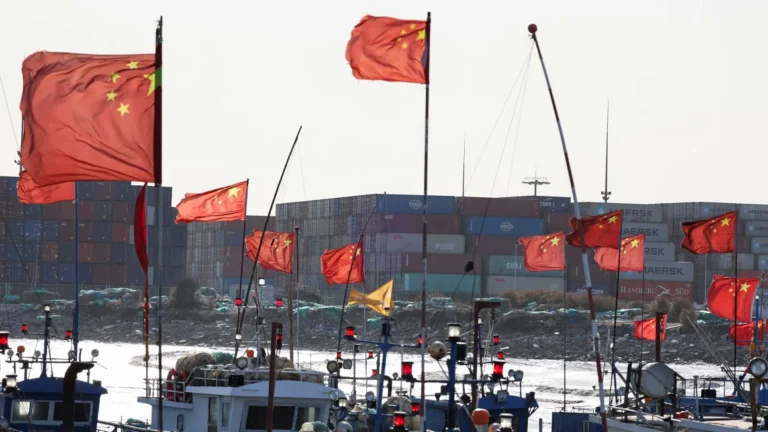Banking News – The escalating trade tensions between the United States and China show no signs of abating, as both economic powerhouses remain entrenched in a deepening standoff. US President Donald Trump’s administration has sharply increased tariffs on Chinese goods, prompting swift retaliation from Beijing, pushing both nations toward a significant decoupling of their trade relationship.
In a surprising announcement Wednesday, President Trump declared a three-month suspension of the latest round of reciprocal tariffs — except for China. The move has intensified what analysts describe as one of the most severe trade confrontations in modern history. Over just a week, US tariffs on Chinese imports surged from 54% to 125%, while China responded by imposing retaliatory tariffs on all US goods, raising the total to 84%.
“This may be the clearest signal yet of a hard economic decoupling,” said Nick Marro, principal economist for Asia at the Economist Intelligence Unit. He warned that the repercussions could reverberate across the global economy, not just within the US and China.
President Trump blamed Beijing’s swift countermeasures for its exclusion from the reprieve, stating, “China wants to make a deal, they just don’t know how quite to go about it.” However, from Beijing’s perspective, the situation is interpreted as an act of “unilateral bullying” by the US.
Chinese President Xi Jinping has taken a firm stance, framing the trade battle as a long-anticipated struggle. Analysts say Beijing has been preparing for such a confrontation since Trump’s first term, including efforts to reduce dependence on US trade and strengthen domestic resilience.
“Xi Jinping has accepted that the gauntlet is thrown down, and they are ready to put up a fight,” said Jacob Gunter of the Berlin-based think tank MERICS.
The economic fallout could be vast. US tariffs could slash Chinese exports to America by over 50%, potentially driving up consumer prices in the US by an estimated $860 billion, according to JP Morgan. In China, the impact could be even more dramatic, risking millions of job losses and a wave of business closures.
Despite the risks, Beijing remains confident in its capacity to endure the economic strain. In a commentary published Monday, the Communist Party’s People’s Daily stated that the country is “well-prepared” for a prolonged trade battle, highlighting strategies to boost domestic consumption and economic support mechanisms.
“China clearly holds a greater advantage in terms of strategic endurance,” wrote Renmin University economist Cai Tongjuan in a state media op-ed.
Meanwhile, China has accelerated efforts to diversify trade relations, strengthening ties with Europe and Southeast Asia. Since the previous trade war and the crackdown on tech giant Huawei, Beijing has worked to reduce reliance on US markets, shifting manufacturing to countries like Vietnam and Cambodia, and investing in advanced manufacturing and AI.
Scott Kennedy, senior adviser at the US-based Center for Strategic and International Studies, emphasized China’s improved resilience: “As much as Washington doesn’t want to admit it, when China says you can’t contain China economically, they have a point.”
With both nations unwilling to back down, the world watches closely as a historic trade relationship worth half a trillion dollars hangs in the balance — and the prospect of a long-term “economic war of attrition” looms large.



 About Us
About Us
Comment